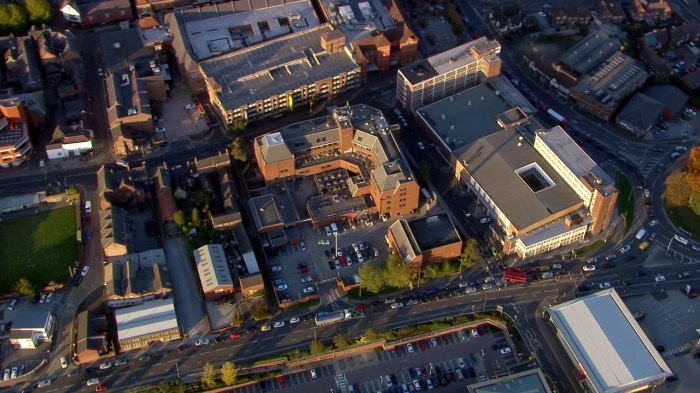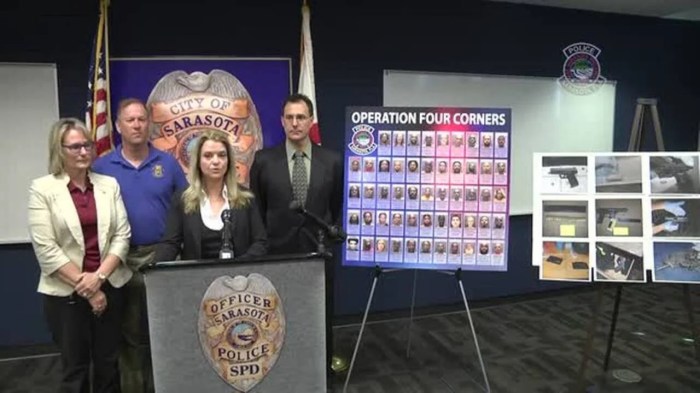In the ongoing battle against drug trafficking, law enforcement agencies employ a wide range of tactics to target drug dealers. These cops face complex legal and ethical considerations, while their efforts can have a significant impact on local communities. This article delves into the world of cops who target drug dealers, exploring their methods, challenges, and best practices.
From sting operations to undercover investigations, law enforcement agencies utilize various strategies to apprehend drug dealers. However, the effectiveness of these approaches can vary, and balancing public safety with individual rights poses a constant challenge.
Policing Methods and Tactics

To effectively target drug dealers, law enforcement agencies employ a range of policing methods and tactics. These approaches vary in their effectiveness and have distinct potential benefits and drawbacks.
Intelligence-Led Policing, Cops who target drug dealers
Intelligence-led policing involves gathering and analyzing information about drug trafficking networks and activities to identify and apprehend dealers. This approach relies on collaboration between law enforcement agencies, community members, and informants.
- Benefits:
- Allows for targeted and efficient investigations.
- Reduces the risk of indiscriminate arrests.
- Drawbacks:
- Can be resource-intensive and time-consuming.
- May require cooperation from informants, which can pose risks.
Surveillance and Undercover Operations
Surveillance and undercover operations involve monitoring suspected drug dealers and infiltrating their networks to gather evidence and identify key players. These tactics can be highly effective but also carry significant risks.
- Benefits:
- Provide direct evidence of drug trafficking activities.
- Can lead to the apprehension of high-level dealers.
- Drawbacks:
- Can be dangerous for undercover officers.
- May require extensive resources and time.
Community Policing
Community policing emphasizes collaboration between law enforcement and community members to address drug-related issues. This approach involves building relationships, identifying local drug markets, and implementing targeted interventions.
- Benefits:
- Fosters trust and cooperation between police and community.
- Can reduce drug-related crime and improve public safety.
- Drawbacks:
- Can be time-consuming and resource-intensive.
- May not be effective in all communities.
Legal and Ethical Considerations

Law enforcement’s targeting of drug dealers is guided by a complex framework of legal and ethical considerations. The primary objective is to protect public safety, but this must be balanced with respect for individual rights and constitutional protections.
Legal Framework
The legal framework governing drug enforcement includes federal, state, and local laws. Federal laws, such as the Controlled Substances Act, classify drugs into different schedules based on their potential for abuse and medical use. State and local laws may vary in terms of specific drug offenses and penalties.
Law enforcement agencies must comply with these laws when conducting investigations and making arrests. They must have probable cause to believe that a person has committed a drug offense, and they must follow proper procedures for searches and seizures.
Ethical Guidelines
In addition to legal requirements, law enforcement agencies are also guided by ethical principles. These principles include:
- Fairness and impartiality
- Respect for individual rights
- Transparency and accountability
Law enforcement officers must act fairly and impartially, without bias or prejudice. They must respect the rights of individuals, including the right to due process and the right to be free from unreasonable searches and seizures.
Balance of Interests
Balancing public safety with individual rights is a challenging task. Law enforcement agencies must consider the potential harm caused by drug trafficking, such as addiction, crime, and violence. However, they must also be mindful of the potential for abuse of power and the erosion of civil liberties.
Courts have recognized the need for law enforcement to target drug dealers, but they have also imposed limits on the use of certain tactics, such as racial profiling and the use of excessive force.
Legal Challenges and Controversies
The targeting of drug dealers has been the subject of numerous legal challenges and controversies. Critics argue that law enforcement agencies often focus on low-level drug offenders, while ignoring larger-scale drug trafficking organizations. They also argue that the use of certain tactics, such as stop-and-frisk, can lead to racial profiling and the violation of individual rights.
Courts have ruled on many of these challenges, and they have provided guidance to law enforcement agencies on how to conduct drug enforcement operations in a manner that is both effective and respectful of individual rights.
Community Impact

Law enforcement efforts targeting drug dealers can have a profound impact on local communities. These efforts can affect crime rates, public perception, and community trust.
One potential benefit of targeting drug dealers is a reduction in crime rates. Drug dealing is often associated with other criminal activity, such as violence, theft, and property damage. By reducing the number of drug dealers operating in a community, law enforcement can potentially reduce the overall crime rate.
However, targeting drug dealers can also have negative consequences for communities. One concern is that it can lead to increased distrust between law enforcement and the community. When law enforcement officers are seen as targeting a particular group of people, it can create a sense of resentment and alienation.
This can make it more difficult for law enforcement to build relationships with the community and solve crimes.
Cops who target drug dealers are often seen as heroes, but their methods can be questionable. One of the most common tactics is to use informants to gather information about drug dealers. This can be a dangerous job, as informants are often targeted by drug dealers.
If you’re interested in learning more about how to become an informant, there are a number of resources available online. One helpful resource is the epa 608 test answers 2023 . This website provides a comprehensive guide to the EPA 608 certification exam, which is required for anyone who wants to work as an informant.
The website also includes a number of practice questions and answers, which can help you prepare for the exam. Cops who target drug dealers often rely on informants to gather information, so if you’re interested in this line of work, it’s important to be aware of the risks and rewards involved.
Another concern is that targeting drug dealers can lead to the displacement of drug activity. When drug dealers are arrested or driven out of one area, they often simply move to another area. This can spread drug activity to new communities and make it more difficult to control.
Strategies for Mitigating Negative Consequences
There are a number of strategies that law enforcement can use to mitigate the negative consequences of targeting drug dealers. One strategy is to focus on building relationships with the community. By working with community members, law enforcement can better understand the needs of the community and develop strategies that are tailored to the specific needs of the community.
Another strategy is to use a balanced approach to drug enforcement. This means using a combination of enforcement, prevention, and treatment strategies. Enforcement alone is not enough to solve the problem of drug dealing. It is also important to address the underlying causes of drug abuse and to provide treatment for people who are struggling with addiction.
Data Analysis and Evaluation
Effective drug enforcement requires rigorous data analysis to assess the impact of policing strategies. This involves collecting, examining, and interpreting data on drug arrests, seizures, and other relevant metrics to identify trends, patterns, and areas for improvement.
Data Collection and Analysis
Data collection is essential for understanding the scope and nature of drug-related crime. Law enforcement agencies collect data on drug arrests, seizures, and other metrics, such as the type of drugs involved, the location of offenses, and the characteristics of individuals arrested.
This data provides insights into the prevalence and distribution of drug activity.
Trend Analysis
Trend analysis involves examining data over time to identify patterns and changes in drug enforcement efforts. By analyzing trends in drug arrests and seizures, law enforcement can identify emerging drug threats, shifts in drug trafficking routes, and the effectiveness of different policing approaches.
Evaluation of Policing Approaches
Data analysis can also be used to evaluate the effectiveness of different policing approaches in reducing drug-related crime. By comparing data from areas with different policing strategies, law enforcement can determine which approaches are most effective in reducing drug offenses, improving public safety, and promoting community well-being.
Best Practices and Recommendations: Cops Who Target Drug Dealers

To enhance the effectiveness of law enforcement agencies in targeting drug dealers, it is crucial to implement best practices and adopt evidence-based recommendations. These measures involve fostering collaboration, improving intelligence gathering, and engaging with the community.
Collaboration among various law enforcement agencies, including local police, federal agencies, and international organizations, is essential for sharing intelligence and coordinating efforts. This collaborative approach enables the pooling of resources, expertise, and information, leading to a more comprehensive and effective response to drug trafficking.
Intelligence Gathering
Effective intelligence gathering is vital for identifying and targeting drug dealers. This involves collecting and analyzing data from various sources, such as informants, surveillance, financial records, and social media. Advanced data analytics and data mining techniques can be utilized to identify patterns and connections that may lead to the apprehension of drug traffickers.
Community Engagement
Engaging with the community is crucial for building trust and gaining valuable information that can assist in drug enforcement efforts. This can be achieved through initiatives such as community policing programs, neighborhood watch groups, and educational campaigns. By fostering positive relationships with community members, law enforcement agencies can gain access to firsthand knowledge about drug activities and potential suspects.
Potential Areas for Further Research and Development
To further enhance the effectiveness of law enforcement agencies in targeting drug dealers, several areas for research and development should be explored:
- Developing innovative technologies for intelligence gathering and data analysis.
- Exploring new strategies for community engagement and trust-building.
- Evaluating the effectiveness of different law enforcement approaches and identifying best practices.
Answers to Common Questions
What are some common policing methods used to target drug dealers?
Undercover operations, surveillance, informants, and traffic stops are among the methods employed by law enforcement.
How do drug enforcement efforts impact local communities?
These efforts can affect crime rates, public perception, and community trust, both positively and negatively.